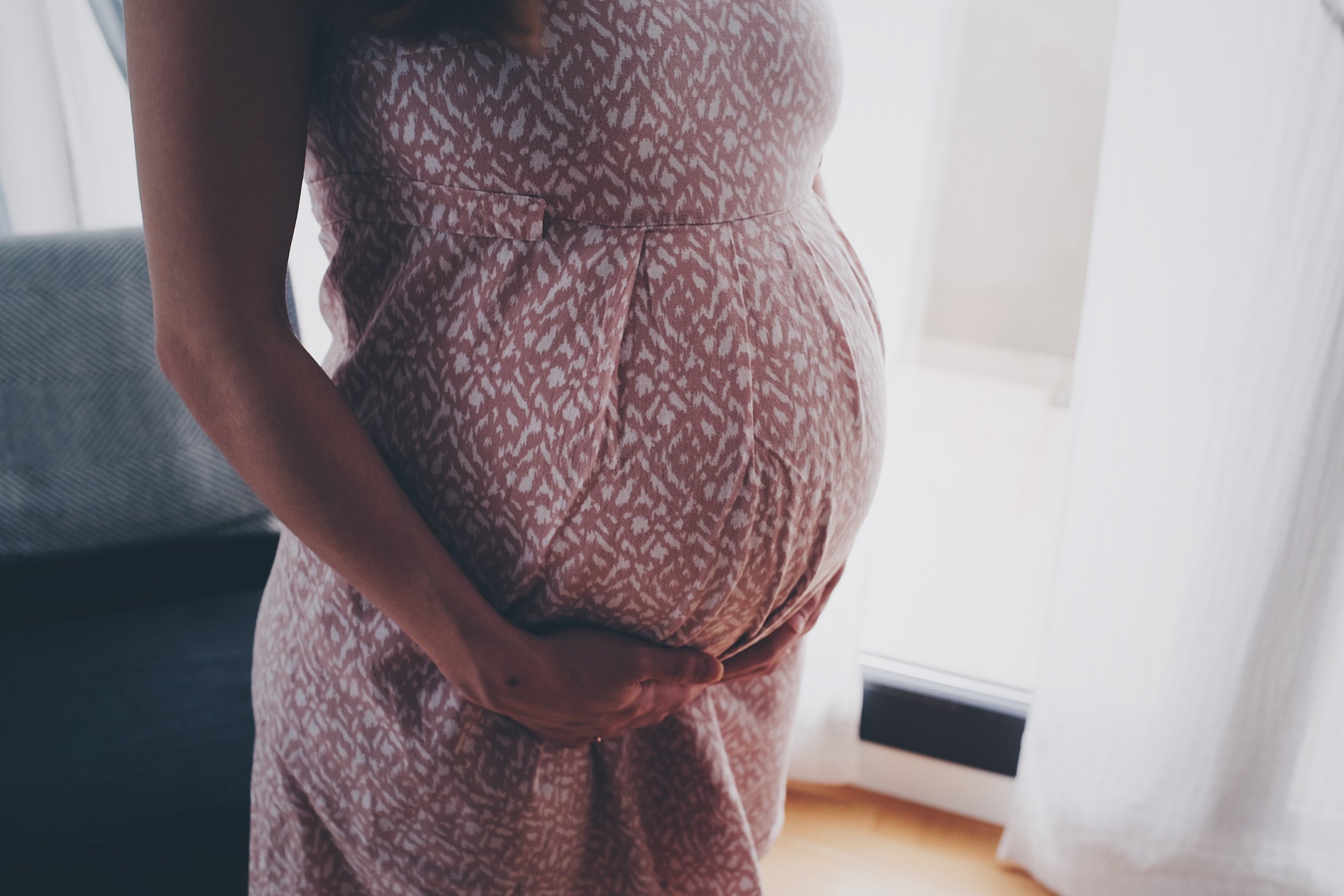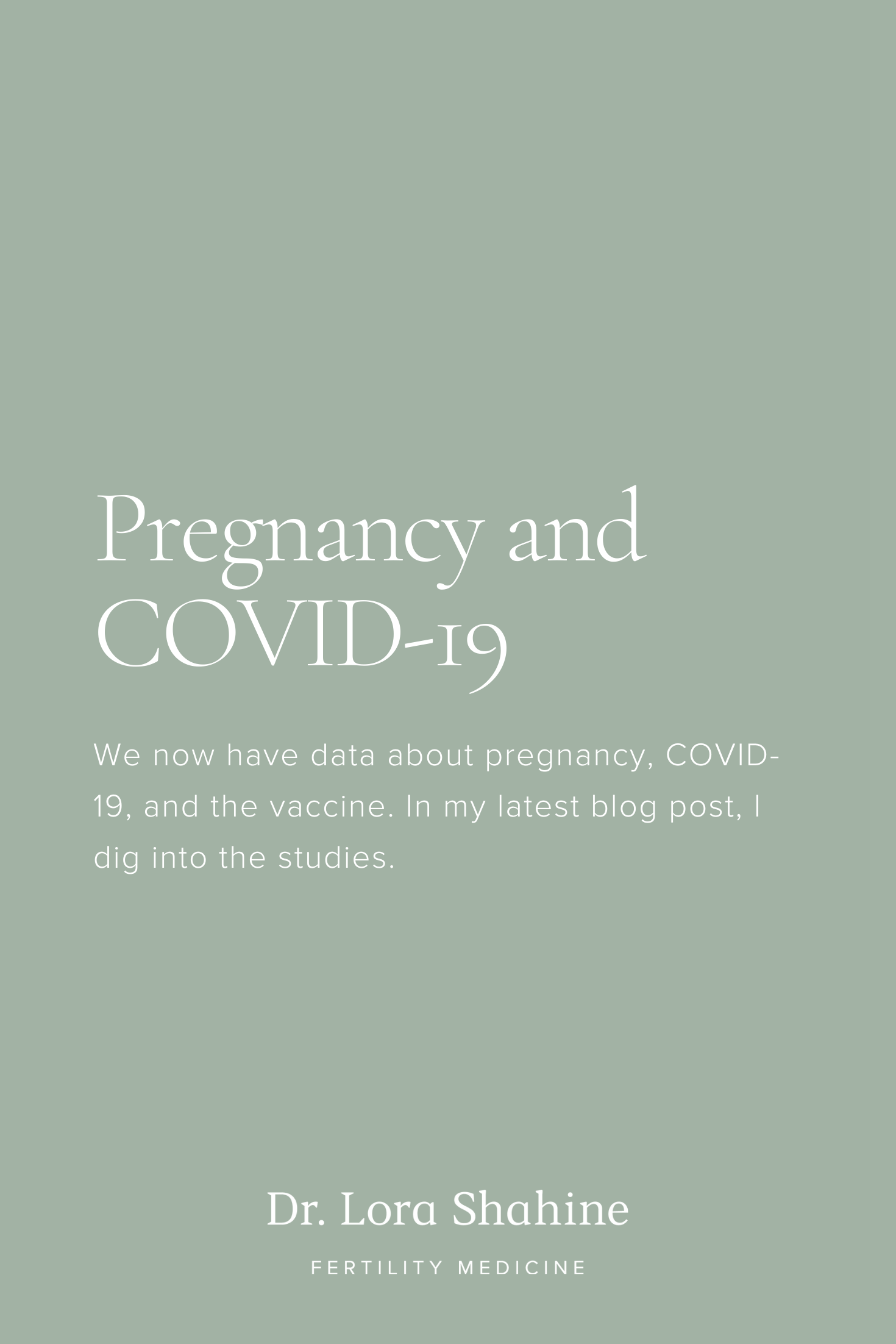COVID-19 and Pregnancy: What Does the Data Say?
At the time of writing this, things are looking a bit brighter with the pandemic. We’re not in lockdown, people are going back to the office, and life feels like it’s starting to get back to “normal”. Despite this, there are still so many questions related to COVID-19, the vaccine, and pregnancy. Now that we’re a couple of years into COVID-19, we have studies that really answer those big questions. Let’s get into it.
Should TTC or pregnant women get the COVID-19 vaccine?
Pregnant women were not included in the original vaccine trials. This is typical for new interventions in medicine, but it really left a vacuum of questions for my patients.
We now have strong recommendations from many medical professional societies: If you are planning to get pregnant, you should get the COVID-19 vaccine. (Of course, there are going to be exceptions, and you should talk with your doctor about your personal situation.) But, overall, getting vaccinated to reduce disease risks from COVID-19 in pregnancy is recommended by professional medical societies.
Pregnant women are still some of the lowest groups of people in the United States to be vaccinated. According to the CDC, approximately 80% of eligible people have gotten at least one dose in the United States, and over 60% have gotten at least two doses. Comparatively, only 40% of women who are pregnant have actually been vaccinated—despite the fact that vaccination can decrease the risk of severe disease in a COVID-19 infection. This message is still not getting to the people that need it.
What happens if you get a COVID-19 infection while pregnant?
When we first started hearing about COVID-19, I was thinking to myself as a doctor, What does this mean for my pregnant patients?
There are viruses that can impact a pregnancy significantly. For example:
There are birth defects associated with the Zika virus, such as babies being born with microcephaly (a small skull and small brain) and lifelong neurologic issues.
With chickenpox, we often recommend that pre-pregnancy patients get vaccinated for varicella (which can lead to chickenpox) to avoid severe sickness in pregnancy, particularly in the first trimester, and pneumonia and ICU admission if contracted in the third trimester.
It’s also recommended to be vaccinated for rubella (also known as German measles) before pregnancy because the infection can lead to a higher risk of miscarriage or stillbirth.
We know that there are viruses that can impact both baby and mom in pregnancy. We also know that pregnant women’s immune systems are more vulnerable to sickness and viruses during pregnancy. Now, we have data: A COVID-19 infection while pregnant does not seem to increase the likelihood of birth defects in babies. While there are risks to contracting the virus while pregnant, this data is reassuring.
One of the first studies to discuss the impact of COVID-19 infection during pregnancy was published in JAMA, the Journal of the American Medical Association in 2021:
It observed the data of women who came to deliver in about 500 different hospitals in the United States between March 1, 2020 and the end of February 2021.
Data was gathered from almost 869,079 women, and 18,715 (~2%) of those women had COVID-19
There was no difference in C-section rate
Women who had COVID-19 at the time of delivery were more likely to deliver pre-term, five times more likely to be admitted to the ICU, 14 times more likely to be intubated, and15 times more likely to die during their hospital stay
24 women out of the 18,000 (0.1%) who had COVID died
71 out of 850,364 (<0.01%) non-COVID patients died
It’s horrible to think about anyone planning to start their new life with a baby and not go home with them. It’s also horrible to realize that the risk of maternal mortality is significantly higher with a COVID-19 infection.
Multiple studies support the conclusion of the JAMA study above, including studies from Britain and China. We see higher maternal mortality, higher ICU admission, and more severe disease in women who are pregnant with COVID-19. There is a truly negative impact of garnering infection while pregnant.
Does the COVID-19 vaccine affect pregnancy?
During pregnancy, I understand why you’ll want to do everything you can to ensure you and your baby are as healthy as possible. When there’s a new medical intervention like a vaccine, it’s normal to want data before making that decision. And now we have the data, so let's go through it.
The New England Journal of Medicine released a study in 2021 collected data of adverse reactions from the COVID-19 vaccine:
By the time this data was analyzed, 35,691 people had entered this data collection, and about 3,958 of those patients were pregnant, mainly in their third trimester.
Of the 3,958 people who were pregnant, 827 had a completed pregnant of which 115 (13.9%) were pregnancy losses and 712 (86.1%) were live births
13.9% of the pregnant patients had a miscarriage, which is lower than the clinically recognized statistic that 25% of pregnancies in the general population will end in miscarriage
I’m saddened for anyone who experiences a miscarriage, but it is reassuring to see that available evidence shows that getting a COVID-19 vaccine does not increase the risk of miscarriage.
A more recent study published by the American Journal of Obstetrics and Gynecology observed COVID-19 vaccine and outcomes in pregnancy:
140 pregnant women received at least 1 dose of the COVID-19 vaccine before giving birth and 1,188 pregnant women did not
85.7% of the people vaccinated received their vaccine in the third trimester and 14.3% received their vaccine in the second trimester
Of those vaccinated, 127 (90.7%) received an mRNA vaccine
There was minimal statistical difference between:
Stillbirth (0.0% vs 0.2%),
Fetal abnormalities (2.2% vs 2.5%),
Postpartum hemorrhage (9.8% vs 9.0%),
Cesarean delivery (30.8% vs 34.1%)
Small size for gestational age (12.0% vs 12.8%)
Maternal high-dependency unit or intensive care admission (6.0% vs 4.0%)
Neonatal intensive care unit admission (5.3% vs 5.0%)
This study tells us that getting vaccinated in your second or third trimester does not increase your risk of poor birth outcomes or health issues for the mom or baby.
There is also a study by the New England Journal of Medicine that observed the vaccine’s potential effect on miscarriage from 6 through 20 weeks of pregnancy:
2,456 participants were vaccinated in the first trimester of pregnancy
There was no increased risk of first trimester miscarriage compared to the general population
Another reassuring study about getting vaccinated while pregnant came out of Israel in 2021:
This included 4,399 women of which 913 (20.8%) were vaccinated with Pfizer-BioNTech COVID-19 vaccines in their first trimester
There was no observed increased risk of poor outcomes in pregnancy
What is the conclusion?
The virus is still here, and one of the best things that we can do to decrease the risk of severe disease, especially in pregnancy, is to get vaccinated. The data shows that you can decrease the risk of hospitalization, ICU admission, death, and stillbirth from a COVID infection by getting vaccinated.
I encourage you to read through the studies in this post. There’s a lot of information out there to help you make a decision. You can also speak with your own doctor about what’s right for you. However, if you’re pregnant or planning to get pregnant, the data supports getting vaccinated as a way to improve your chances of a healthy pregnancy and delivery.
For further questions, please comment on my YouTube video. I hope this was helpful.



